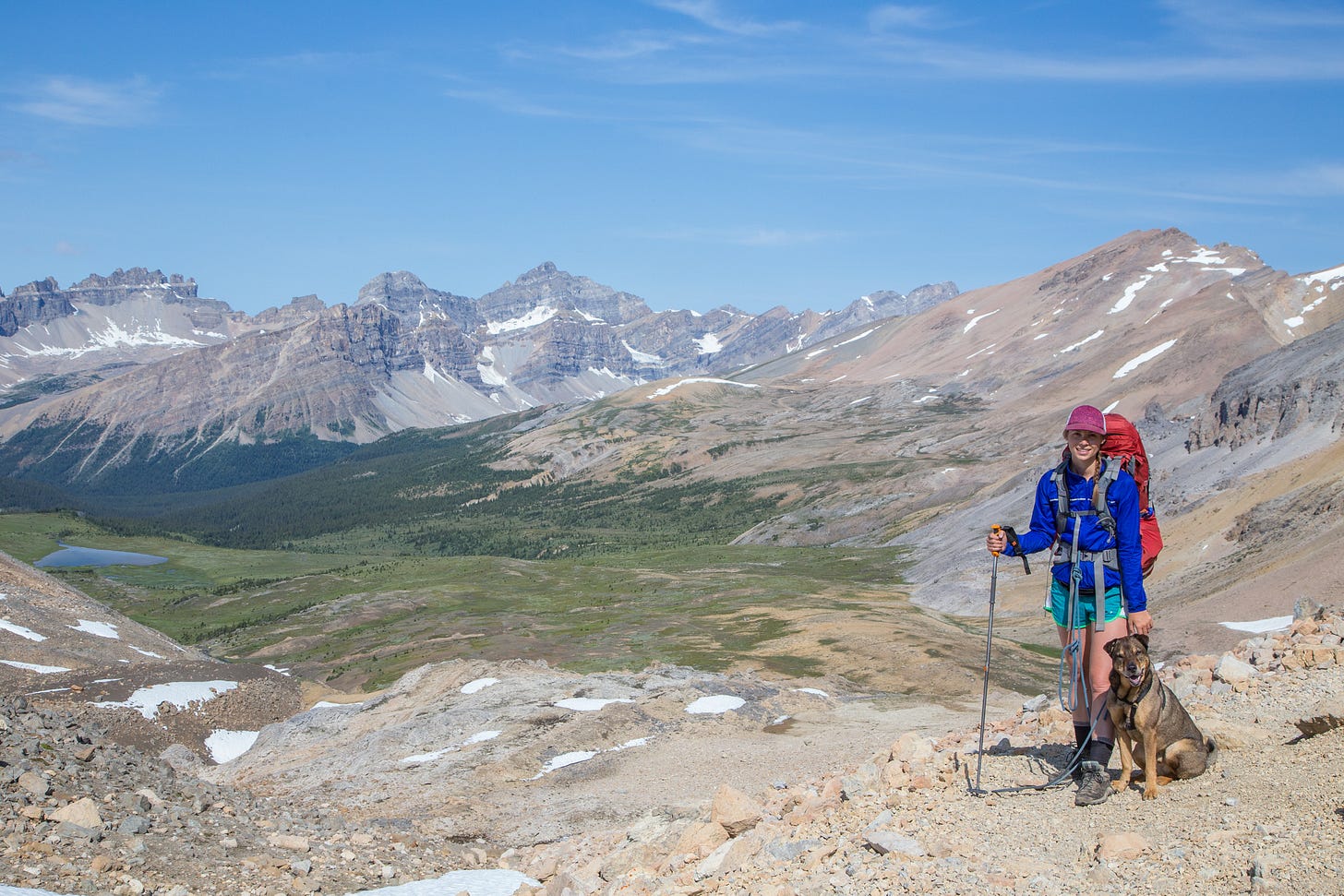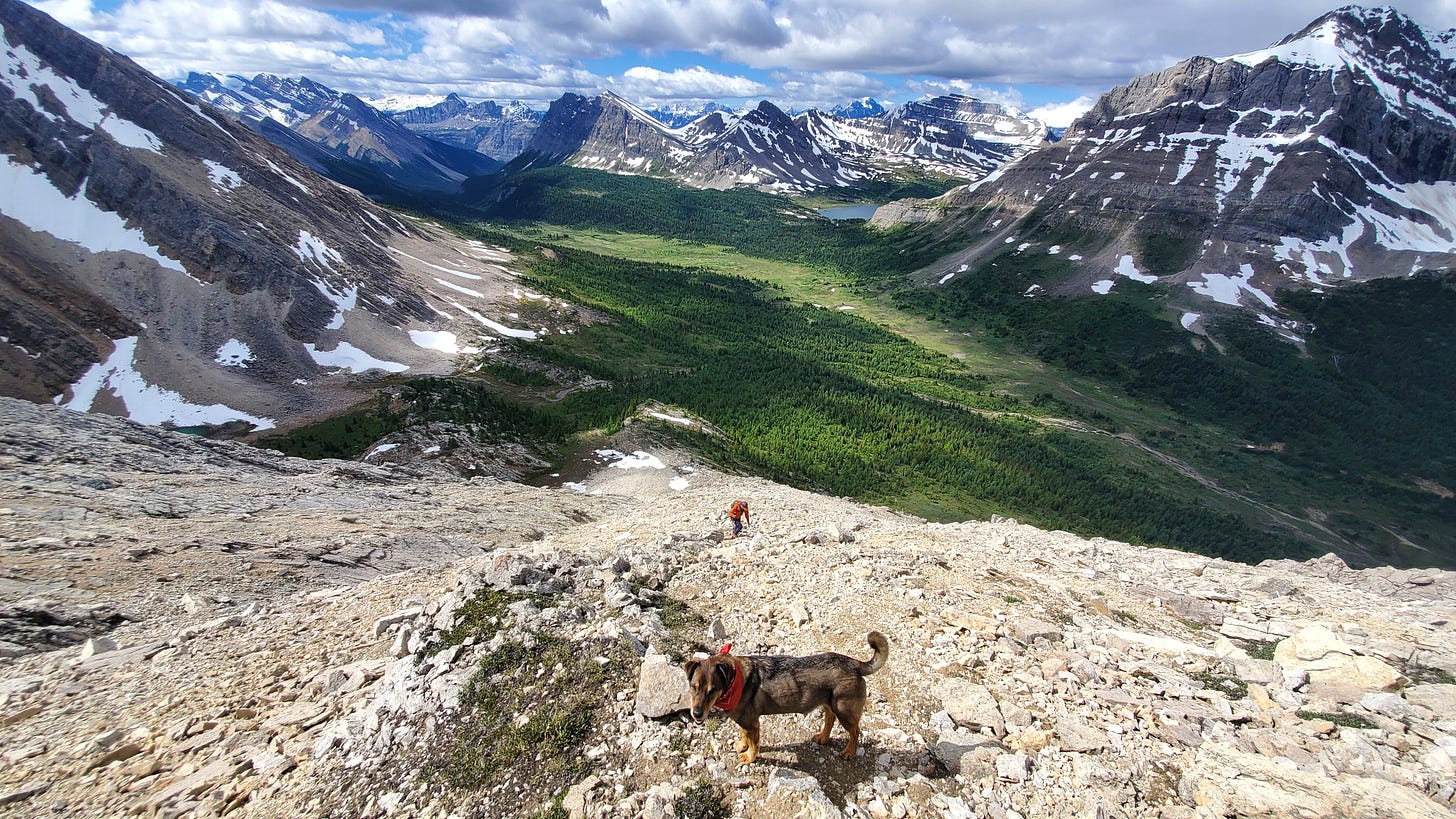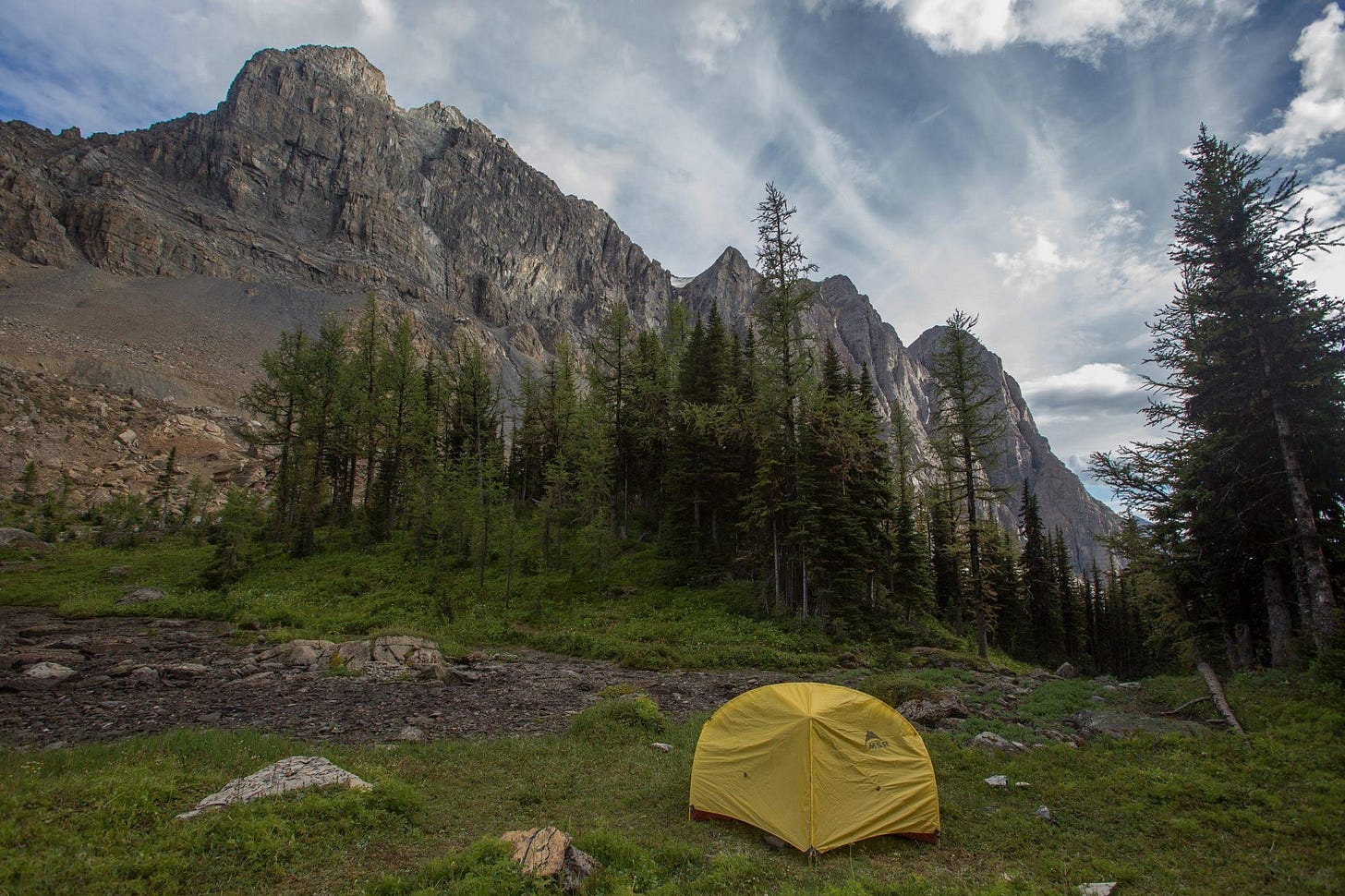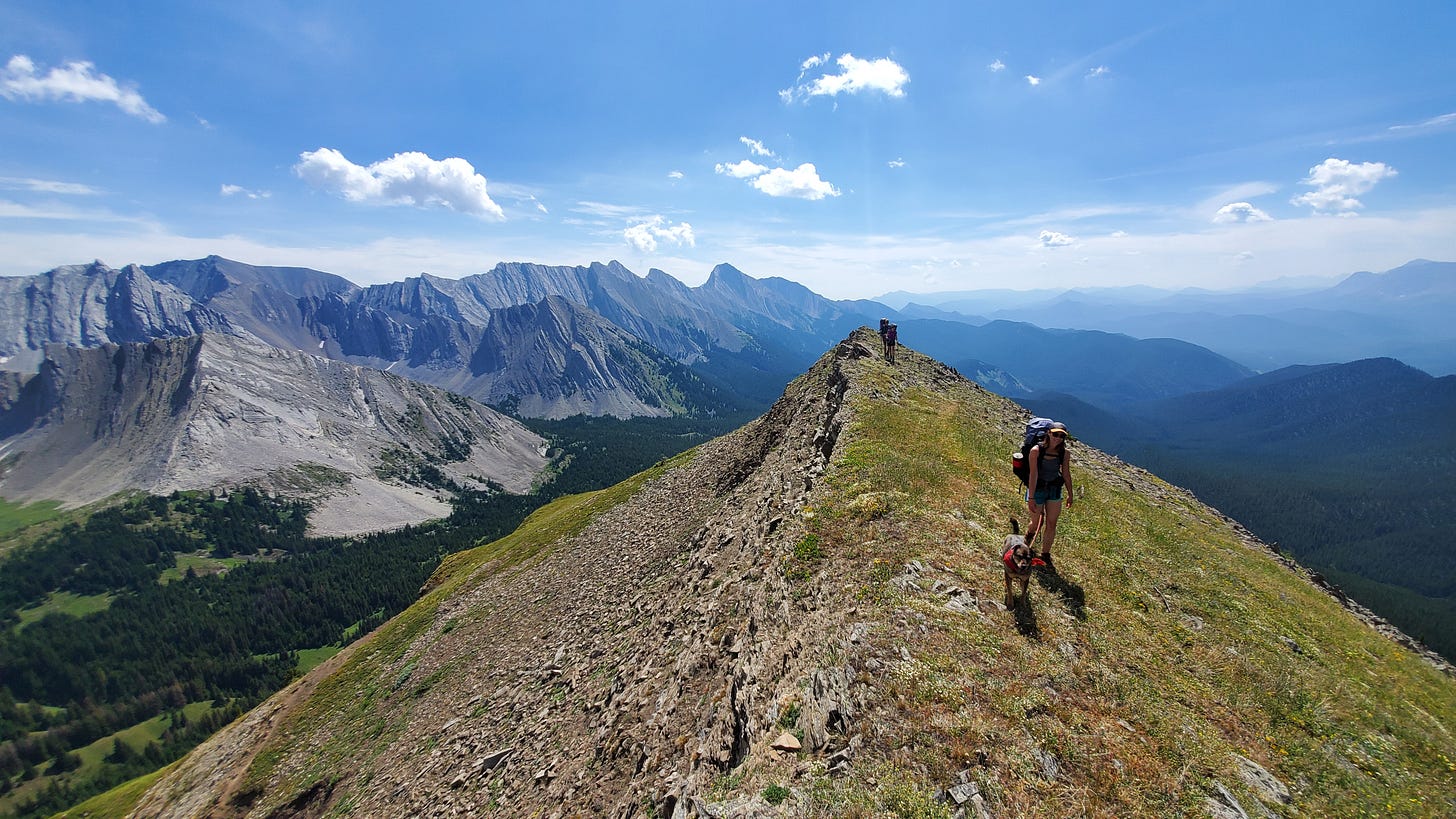Go Outside: The Backpacking for Beginners Edition
From what to pack to where to go, we've got you covered
The first time I, Annalise, went backpacking was just over a decade ago, in 2012. My dear sister Cailynn, who lived in Edmonton at the time, took me on a trip to Maligne Pass Trail in Jasper. I’d been camping hundreds of times but had never hiked into a campsite with everything I’d need for the night on my back. Cailynn had been on a few trips with her outdoorsy friends in Edmonton and knew the ropes. I borrowed some gear I didn’t have from her friends and we were off.
Photography just wasn’t as good in 2012 and panoramas were very in
We had a wonderful trip and I realized there was an entire world of hiking/camping I hadn’t experienced yet. Since that first trip in 2012, I’ve averaged a couple backpacking trips every summer and I always immensely look forward to these adventures.
Backpacking is a mix between hiking and camping and it allows you to explore areas you could never reach via car camping or via a single day of hiking. It can be incredibly remote and incredibly beautiful. Sure your hips will hurt from the weight on your back and, if you’re like me, you’ll get bruises on your collarbone no matter what pack you wear and how you distribute the weight, but when you see mountain views like this with not a soul in sight, it’s so worth it.
North Molar Pass in Banff National Park
There’s something about carrying everything you’ll need for a night or two or three or four on your back, leaving cell service and internet reception, and walking great distances through varied weather and terrain that makes you feel incredibly accomplished. Backpacking is always a great adventure!
I’m also a big fan of booking an extra night at a backcountry site and doing a day hike (with a light daypack) to break up the heavy pack days. The views are always stunning and you usually see no one else on the trails. Pure bliss.
Scrambling up Oyster Peak in Banff National Park
I was reminded of my very first backpacking trip this past weekend, when my husband, 20-month-old son, and I headed to Numa Creek in Kootenay National Park, for our first backcountry trip of this season.
While we took our son on a couple backpacking trips last summer, there’s a big difference between adventuring with a breastfeeding baby and a rambunctious (and heavy! and opinionated! and goofy! and oh so fun!) toddler. Taking a toddler backpacking introduces new challenges that, at times, had me feeling like a beginner once again.
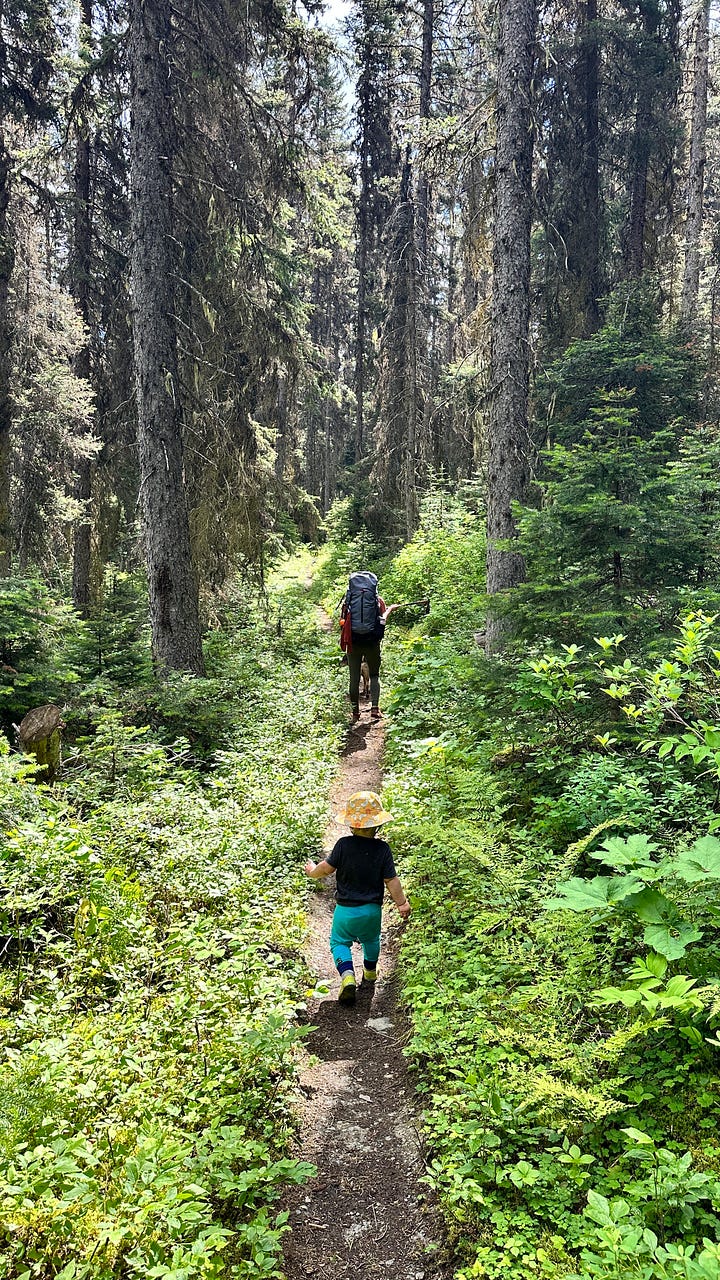
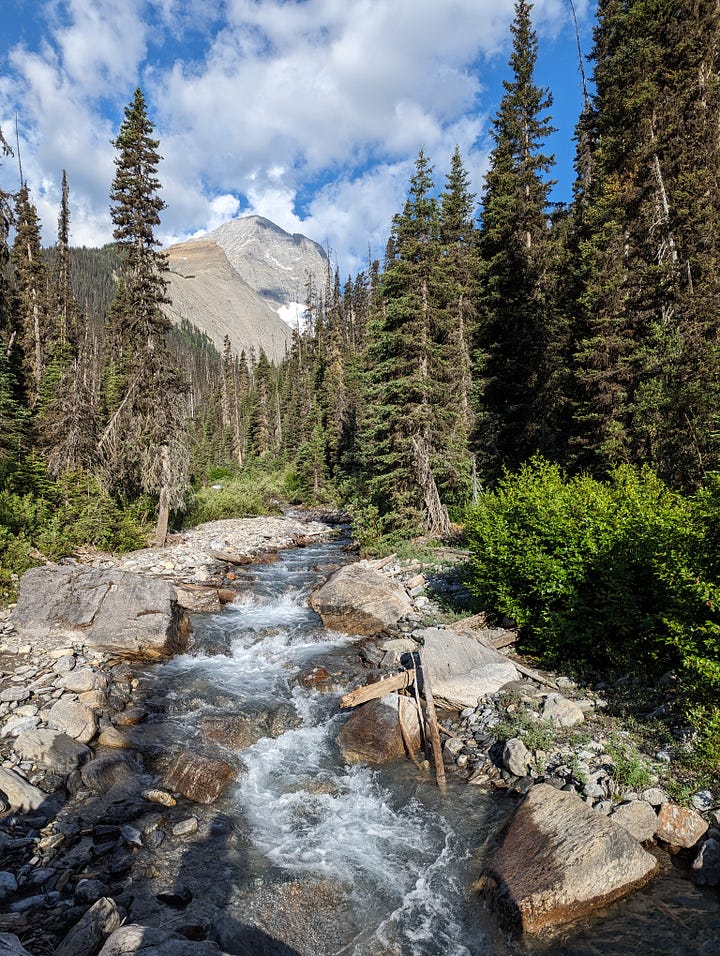
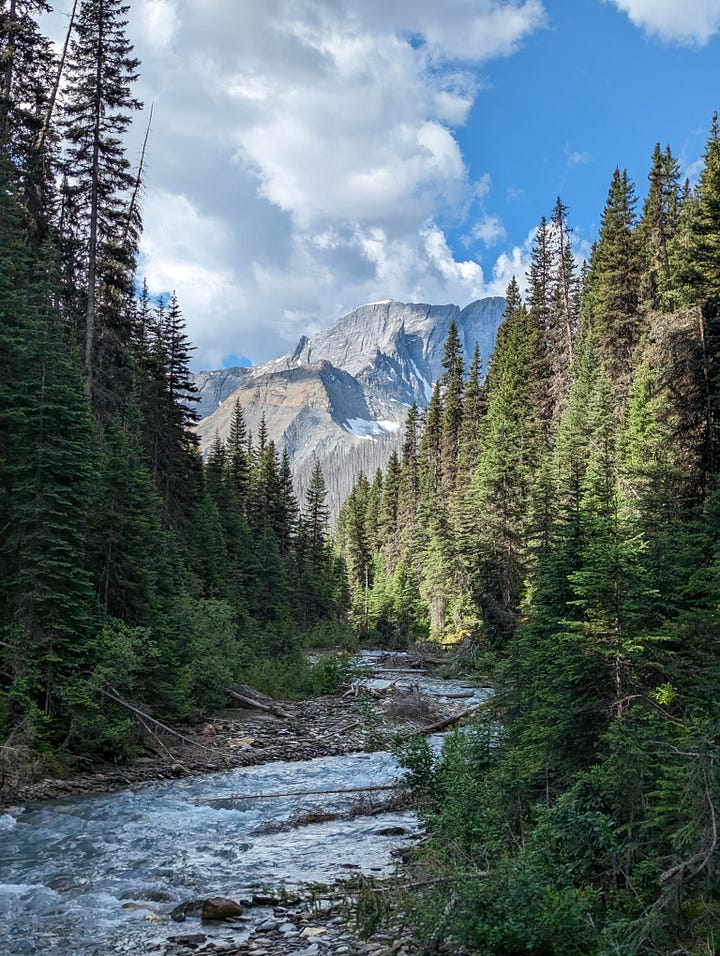
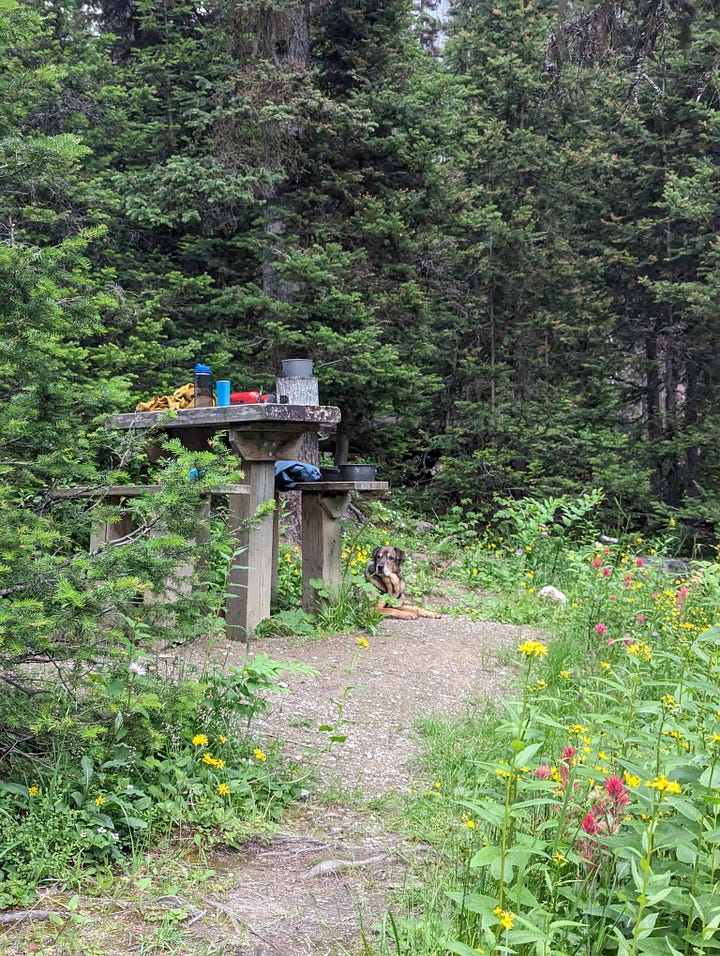
And so, with that, this week we bring you…
Some tips to get ready for your very first backpacking trip:
1. If Possible, Go With Someone Who Has Backpacked Before
There’s so much you learn and pick up on during your first few trips — from packing to food preparation to gear. If you can swing heading out for the first time with someone who has been before (like that first trip I did with my kind sister), it will make the learning curve a lot less steep. Places like the University of Calgary Outdoor Centre also offer intro to backpacking courses which can be a wonderful way to learn.
2. Keep it Simple
Don’t choose a three-day 55-km route if you’ve never been backpacking before! Pick an easy destination and know that even if you’re used to, and comfortable with, long day hikes, the weight of your overnight pack really changes things. It’s a totally different ballgame! You can also apply the Keep It Simple mantra to food/snacks and clothing/layers. Take clothing you’ve worn before and you’re comfortable with and be OK with wearing the same thing several days in a row. Take lightweight snacks that you know you like and stick to simple meals that just involve adding hot water. There’s plenty of time to complicate things and get fancier once you’re more comfortable with backpacking.
It’s not always beautiful views! A snowstorm on Skyline Trail in Jasper National Park
3. Talk to People You Pass on the Trail & Fellow Campers
I find any time I chitchat with fellow hikers in the backcountry I learn something new — a new route I haven’t tried, gear intel, a hot tip about the critters in the area, an idea I’ve never thought about when it comes to food, and so on. On this weekend’s trip, chatting with strangers had me eating fuzzy peaches (that someone else had carried) and being told I was an inspiration for being in the backcountry with a toddler…so win-win!
Wolverine Pass near Kootenay National Park
4. Rent & Borrow Gear
My very basic packing list for backpacking looks like this:
-Tent
-Backpack & Rain Cover
-Sleep Bag & Sleeping Pad
-Stove, Lighter & Kitchen Supplies
-Food & Water Bottle
-Water Treatment
-Clothes including rainwear, puffy jacket, gloves & toque & layers
-Toiletries including sunscreen & bugspray, toilet paper, hand sanitizer & toothbrush/paste
-Emergency Gear including InReach, whistle, fire starter & emergency blanket, first-aid kit,
-Headlamp
-Map/Route Notes
-Cellphone and battery pack
-Hiking pole
-Dog stuff & Baby stuff
As you can see, that’s a lot of stuff to carry on your back. If you’ve never backpacked before (and don’t know if you’ll like it!) there’s no point spending thousands on brand new gear. Outdoor centres and rental shops will lend you everything from sleeping bags to camping stoves for reasonable prices. Kijiji is also often a popular place for people who’ve decided they actually don’t like backpacking to sell their gear at a reasonable price. As well, if you have friends who backpack, ask if you can borrow their gear to try the sport out for yourself.
A trip to the Highwood Range in Kananaskis
5. Test Any New Gear Before You Go
There’s nothing like walking 13-kilometres up steep mountain trails and realizing you’re missing a piece of your tent or you don’t know how your new stove works and can’t Google an instruction video. Test your gear before you go and make sure you know how to use it. I can’t stress this enough. This includes properly packing your backpack before your trip and practicing walking with it.
6. Leave No Trace
Familiarize yourself with the dos and don’ts of pooping in the woods (not all backcountry sites have pit toilets) before you go and plan to pack everything you take with you back out — yes, that includes dirty diapers if you’re travelling with a baby or toddler!
Berg Lake Trail in Mount Robson Park, British Columbia
7. Have fun!
Yes backpacking is a lot of work. There’s also a reason why backcountry sites are snatched up in minutes when bookings open every spring here in Alberta. It truly is a wonderful way to spend a weekend in nature, IMHO! If you want to give backpacking a try this summer, check for cancellations (that’s how we snagged Numa Creek on the Canada Day long weekend), and note that now is also a good time to start researching and planning what sites you want to reserve for next year!
If you’re an avid backpacker and have suggestions for those wanting to give this type of adventuring a try, leave a comment and let us know your tips.
P.S. Join us online on Tuesday July 18 for a Skill Builders conversation about going outside with CBC Calgary's Loren McGinnis and the Calgary Public Library. Details & free tickets here.



